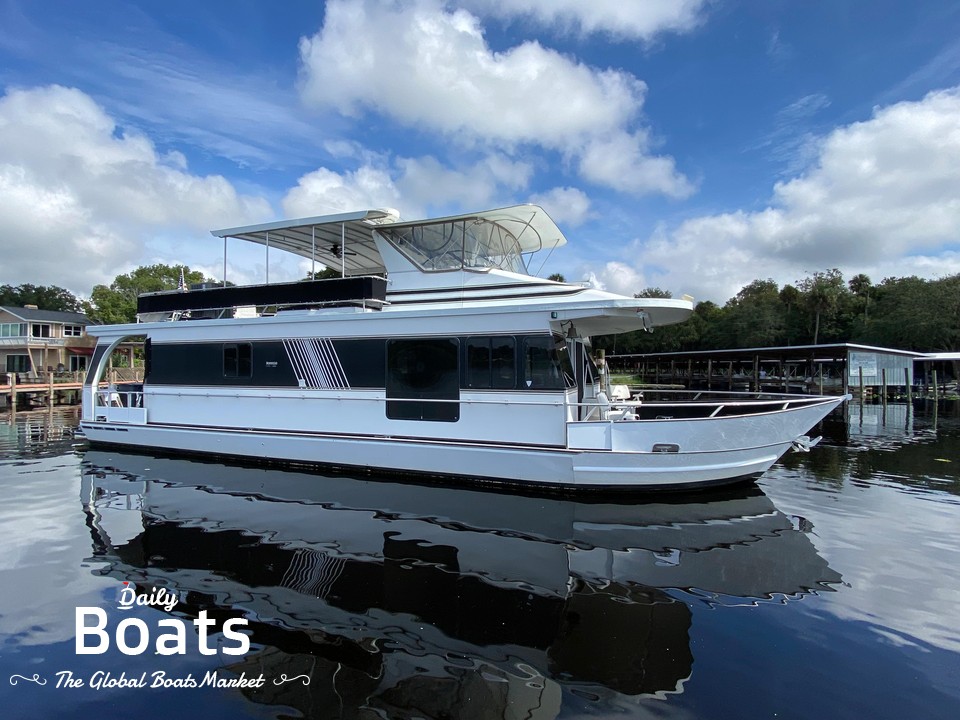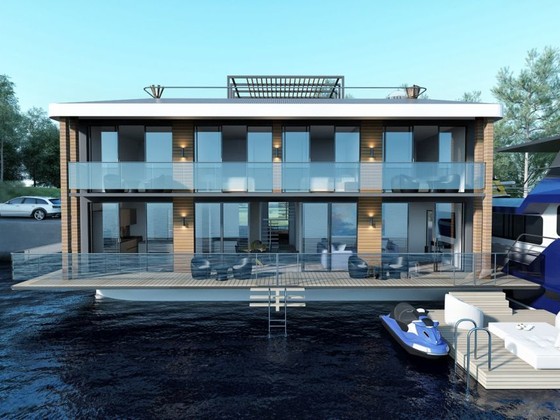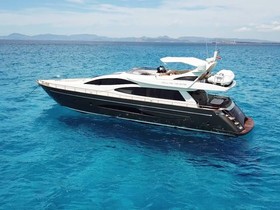Floating houses

What are floating houses and why are they gaining popularity?
Introduction
Do you ever dream of living in a house on the water? With a floating house, that dream could become a reality!
Floating houses are homes that are built on platforms that float on the water. They have been around for centuries, but they are gaining popularity again as people look for more environmentally friendly and unique living options.
There are many advantages to living in a floating house. They are environmentally friendly because they have a small footprint and don't damage the ecosystem. They are also affordable, as you don't need to buy land to build one. And finally, they are just plain cool!
If you're looking for a different kind of home, a floating house might be right for you. Keep reading to learn more about these unique dwellings.
What are floating houses
History of floating houses
The first known floating house was built in the Venetian Lagoon in the 12th century, and served as a home for fishermen and their families. The homes were made from wood and had a thatched roof. They were anchored to the bottom of the lagoon with wooden poles.
In the 18th century, floating homes began to be used as housing for workers on canals and rivers in Europe. These homes were called "houseboats." In England, houseboats were used as living quarters for workers who maintained the canals. In Amsterdam, houseboats were used as apartments for working-class families.
The Industrial Revolution brought an increase in river and canal traffic, which led to an increase in the number of floating homes being used as living quarters for workers. By the mid-19th century, there were an estimated 8,000 houseboats in London alone.
In the United States, floating homes have been used since the early 1800s as housing for workers on canals and rivers. In San Francisco, during the California Gold Rush of 1849, floating homes were used as living quarters for miners working on the San Francisco waterfront.
How do floating houses work
Floating houses are typically built on a platform that is either buoyant or tethered to land. Buoyant platforms are usually made from materials such as styrofoam or plastic barrels filled with air or water. Tethered platforms are usually made from barges or pontoon boats that are moored to land with cables or anchors.
The platform provides stability for the house and keeps it from sinking if it floods. The tethers or anchors keep the house from drifting away if there is a strong wind or current.
Advantages of living in a floating house
There are many advantages to living in a floating house:
- They are environmentally friendly because they have minimal impact on shorelines and ecosystems;
- They are affordable because they can be built using recycled materials;
- They are unique because they offer a one-of-a-kind lifestyle;
- They offer protection from storms and rising tides;
- They offer privacy and seclusion;
- They provide access to fishing and hunting grounds;
- They provide stunning views of sunsets and sunrises;
- They are a great way to live "off the grid."

Why are floating houses gaining popularity
Environmentally friendly
Floating houses are gaining popularity because they are environmentally friendly. They are powered by renewable energy, which means they generate no emissions. They also use less water than traditional homes, and the materials used to build them are recyclable.
Affordable
Another reason floating homes are becoming more popular is because they are more affordable than traditional homes. The cost of building a floating home is typically 20-30% less than the cost of building a traditional home. Additionally, floating homes can be built in areas where land is scarce or expensive, making them a more affordable option for people looking to buy a home.
Unique
Lastly, floating homes are gaining popularity because they offer a unique living experience. There is something special about living on the water that appeals to many people. Plus, floating homes can be designed to fit any lifestyle and budget. Whether you want a luxury home or a simple getaway, there’s a floating home for you.
Conclusion
Floating houses are an interesting and unique housing option that is becoming increasingly popular for a number of reasons. They are environmentally friendly, affordable, and offer a lifestyle that is unlike anything else. If you're looking for an alternative to traditional housing, floating homes may be the perfect option for you.







